For my traditional (?) post-Thanksgiving trip with Randi this year, we went to Charleston, South Carolina.
Charleston really is a beautiful city, and such a joy to walk around – not just because the sun was out. Our AirBnb was a 40 minute walk from the centre of downtown, through mostly quiet, residential streets, but all along the way we passed local shops and bars and restaurants and people. The contrast with some of the Midwestern cities I’ve visited recently is obvious. And sure, Charleston is a tourist destination: an old city steeped in American history and blessed by a core of old money and narrow, pre-car streets. It is supposed to be nice. But it really does live up to it.
The best decision we made was to take a walking tour, led by Scott and highly recommended. He gave a great introduction to the city’s history – from its founding as an English colony to the place where the first shots in the Civil War were fired – and didn’t shy away from the story of the native Americans, or enslaved African Americans, which are a fundamental part of it.
We also ate at slightly-pricey-but-delicious restaurants (many thanks to Cecelia for recommending The Hominy Grill, which we visited twice) including honey-coated crawfish hushpuppies, amazing crab cakes and southern fried chicken. And on Friday night we enjoyed the Que d’Keys Duelling Piano Bar – highlights include a reluctant Miley Cyrus cover and discovering that the woman behind the bar was from Bury St Edmunds. (It was also the first and only time that my ride home has been in a pickup truck.)
But we also wanted to visit a former plantation, eventually deciding on Middleton Place. This is where my feelings are mixed, and I still don’t exactly know what to make of it. Because I cannot imagine a plantation as being about anything other than slavery. That’s the purpose of preserving it as a historic site: to ensure the past is not forgotten, and provide a place where it is talked about, especially with children. Maybe that’s a bad starting point, and it’s just a way to compartmentalise the past and keep it out of mind beyond certain designated places.
Either way, this is clearly not what the owners of Middleton Place think they are doing. As you would expect from the former gardens of very rich people, the landscape is beautiful, and seems to be why people come. We had to assemble at #22 on the map for the slavery-focused tour, and while it’s hard to articulate exactly what was wrong, it just didn’t do justice to how sober the subject should be. It was more of a historical curiosity, safely removed from the present day. No slave cabins have actually survived: #22 on the map was, in fact, constructed after the Civil War for returning slaves coming to work as sharecroppers. This would have been a good opportunity to talk about the legacy of slavery after 1865, but we didn’t. And starting a tour by saying that slavery “has existed for millennia” and “is not just a Southern institution” is not the best way of taking on the responsibility for telling this particular chapter of human history.
I don’t want to suggest that our guide was an apologist for slavery. She wasn’t. She described what happened and answered questions honestly and it could have been a lot, lot worse. But it also could have been better.
After the tour, we walked down this narrow strip of land – which we probably weren’t supposed to – and Randi almost got eaten by an alligator. So there’s that.
For our final day in Charleston, we visited Fort Sumter. History lesson: South Carolina was the first state to secede from the Union at the start of the Civil War, and later fired the first shot at Fort Sumter where the US Army had hunkered down. Built to withstand the British navy coming from the sea, it wasn’t really designed for an attack in the other direction and they eventually surrendered. Only the base of the structure remains today, but it is a good place to sit and look back at Charleston over the water and be alternately grateful and afraid.
Beth Dubowe-Lawrence, Gillian Self, Deborah Herrick, Amanda Schalk, Hazel Boss, Sharon Dinkin, Randi Lawrence liked this post.
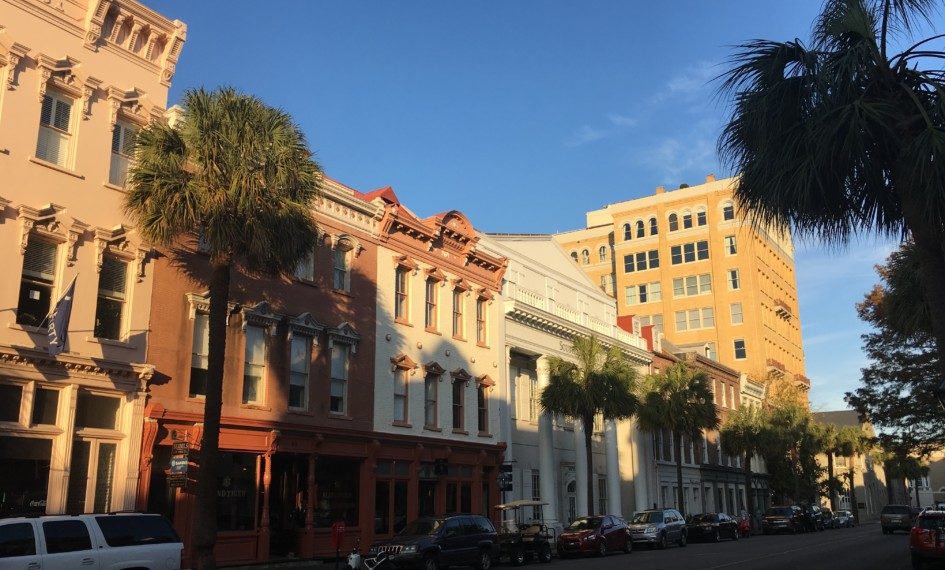
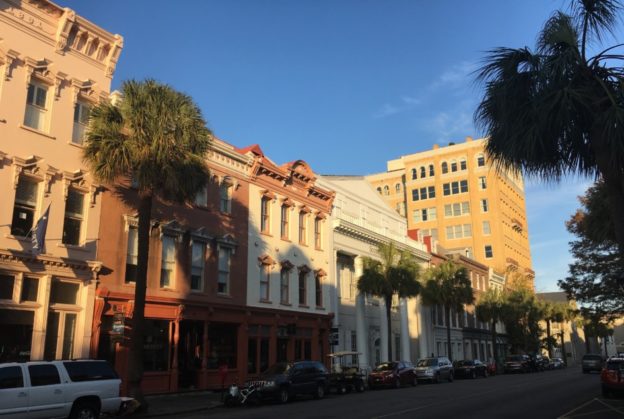
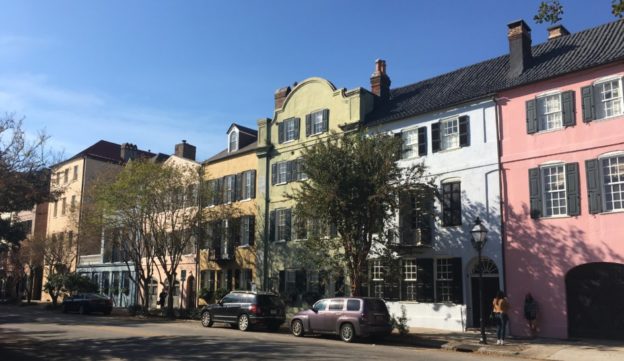
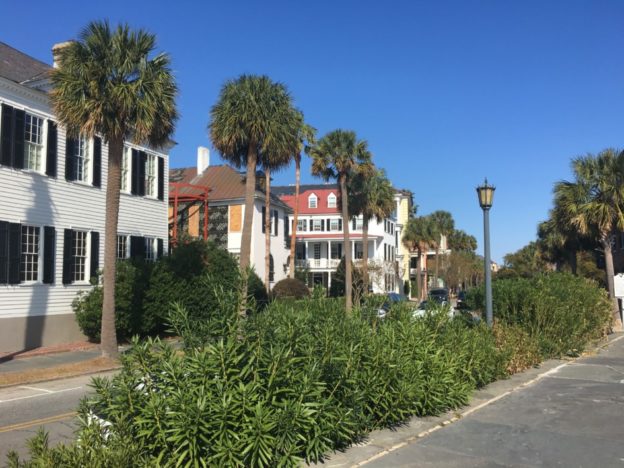
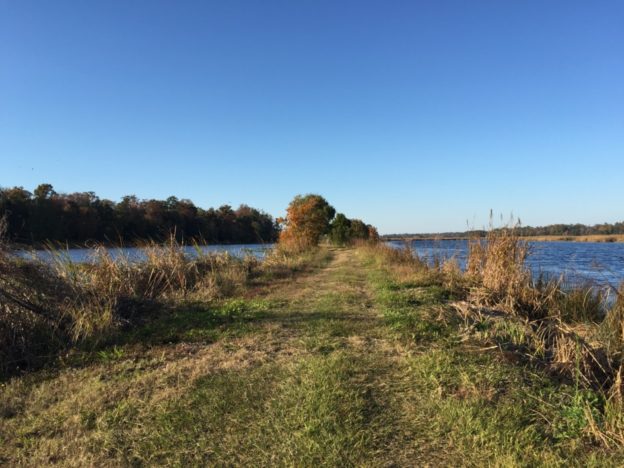
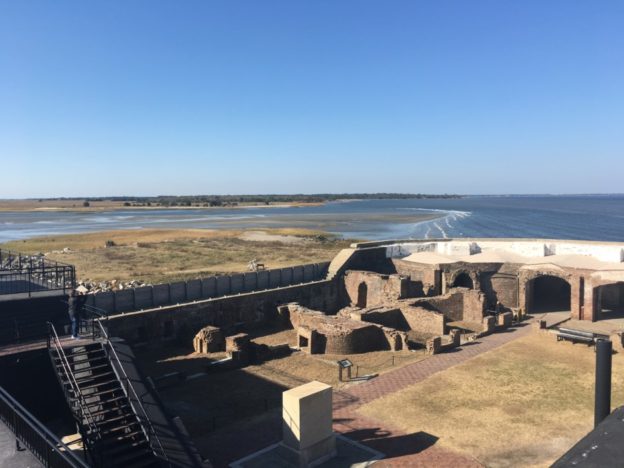
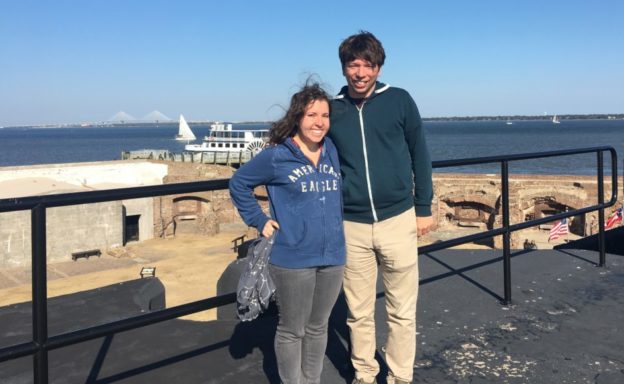








One Comment on :
Charleston